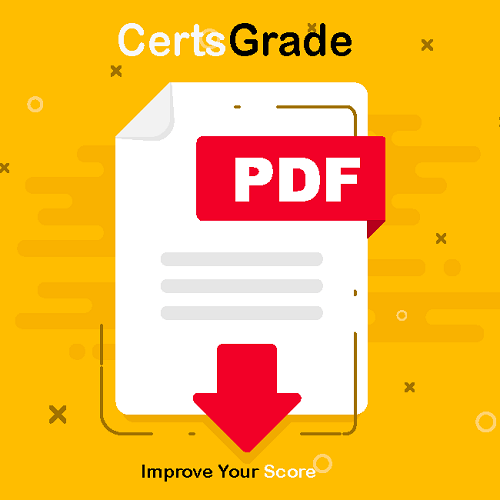 ASPPB-EPPP
ASPPB-EPPP
- Last Updated :
Latest ASPPB-EPPP Questions Answers
$49.00
Certsgade's study materials for the ASPPB-EPPP exam are thorough and effective. The content aligns with the Examination for Professional Practice in Psychology certification, and the practice questions aid in exam readiness.
CertsGrade.com's practice tests were a mirror image of the actual exam, ensuring my first-attempt success without a hitch.
PDF Dumps for Certsgrade ASPPB-EPPP Exam Practice
ASPPB-EPPP Professional Practice in Psychology Exam Guide
The Examination for Professional Practice in Psychology (EPPP) is a critical assessment tool used by the Association of State and Provincial Psychology Boards (ASPPB) to evaluate the knowledge and skills of individuals seeking licensure as psychologists. The ASPPB-EPPP is designed to measure the applicant’s ability to apply their theoretical knowledge to real-life situations in the practice of psychology. This behvioral health exam is highly comprehensive, covering a broad range of topics related to psychology, including biological bases of behavior, cognitive-affective bases of behavior, social and cultural bases of behavior, assessment and diagnosis, treatment, intervention and consultation, and professional ethics and standards.
ASPPB-EPPP Exam Details
The ASPPB-EPPP exam is a multiple-choice exam, comprising 225 questions, of which 175 are scored, and the remaining 50 are pre-test questions. The pre-test questions are not scored but are included to gauge the difficulty level of future exams. The exam is administered over a four-hour period and is computerized. The EPPP exam is not specific to any particular subfield of psychology, and it assesses the applicant’s knowledge of psychology as a whole.
How to resigter for the ASPPB-EPPP Exam?
The ASPPB EPPP exam is administered by Pearson VUE, a leading testing and assessment provider. Applicants can register for the exam by visiting the ASPPB website or the Pearson VUE website. The fee for the exam varies depending on the jurisdiction, and applicants are encouraged to check with their respective state or provincial licensing board for the latest fee information.
How to prepare for the ASPPB-EPPP Exam?
Certsgrade has developed a comprehensive study guide and practice test to help applicants prepare for the ASPPB-EPPP exam. The study guide covers all the topics included in the exam and provides a detailed explanation of each topic. The practice test is designed by professionals to simulate the actual exam and includes questions similar in format and difficulty level to those on the exam. Applicants are encouraged to use the study guide and practice test as part of their exam preparation. Candidates can access these resources at Certs grade.com.
What is the passing score for the ASPPB-EPPP exam?
To pass the EPPP exam, applicants must achieve a scaled score of 500 or higher. The scaled score is calculated based on the number of questions answered correctly, taking into account the difficulty level of each question. The score report includes the applicant’s scaled score and a diagnostic profile that identifies the applicant’s strengths and weaknesses in each of the content areas covered by the exam.
Are there any requirements to pass the ASPPB-EPPP exam?
In addition to passing the ASPPB EPPP exam, applicants must meet other requirements to obtain licensure as a psychologist. These requirements vary by jurisdiction but typically include completion of a doctoral degree in psychology, completion of a specified number of supervised clinical hours, and adherence to ethical and professional standards. Applicants are encouraged to check with their respective state or provincial licensing board for the latest licensure requirements.
What topics are covered in the ASPPB-EPPP exam?
The EPPP exam covers a wide range of topics related to psychology. The content is divided into eight domains, each of which includes multiple subdomains. The domains and subdomains are as follows:
Biological Bases of Behavior (10%)
- Neuropsychology
- Sensation and Perception
- Psychopharmacology
- Genetics and Evolution
Cognitive-Affective Bases of Behavior (13%)
- Learning and Memory
- Thinking, Reasoning, and Problem-Solving
- Motivation and Emotion
Social and Cultural Bases of Behavior (11%)
- Social Psychology
- Cross-Cultural and Diversity Issues
Growth and Lifespan Development (12%)
- Developmental Psychology
- Aging and End of Life
Assessment and Diagnosis (16%)
- Psychometrics and Assessment
- Diagnosis and Classification
- Psychological Testing
Treatment, Intervention, Prevention, and Supervision (15%)
- Psychotherapy
- Pharmacotherapy
- Group Therapy
- Crisis Intervention
- Prevention and Consultation
- Supervision
Research Methods and Statistics (7%)
- Research Methods
- Data Analysis and Interpretation
Ethical, Legal, and Professional Issues (16%)
- Ethics and Standards of Practice
- Legal Issues and Professional Responsibility
Behavioral Health Related Certification Exams
Following are the other Behavioral Health exams to pass the ASPPB certification:
- National Board for Certified Counselors: National Clinical Mental Health Counseling Examination
- Association of Social Work Boards: Advanced Generalist
- Association of Marital and Family Therapy Regulatory Boards: Marital and Family Therapist
- Association of Social Work Boards: Licensed Clinical Social Worker
- Association of Social Work Boards: Bachelor of Social Work
In conclusion, the ASPPB-EPPP exam is a critical assessment tool used by the ASPPB to evaluate the knowledge and skills of individuals seeking licensure as psychologists. The exam is highly comprehensive, covering a broad range of topics related to psychology, and is administered by Pearson VUE. To pass the ASPPBEPPP exam, applicants are encouraged to use the Certsgrade’s study guide and practice test as part of their exam preparation and to check with their respective state or provincial licensing board for the latest licensure requirements. The ASPPB takes exam security very seriously and has implemented several measures to prevent cheating and ensure the integrity of the exam. We hope you found this information useful. Keep learning and growing!
Follow us on:
